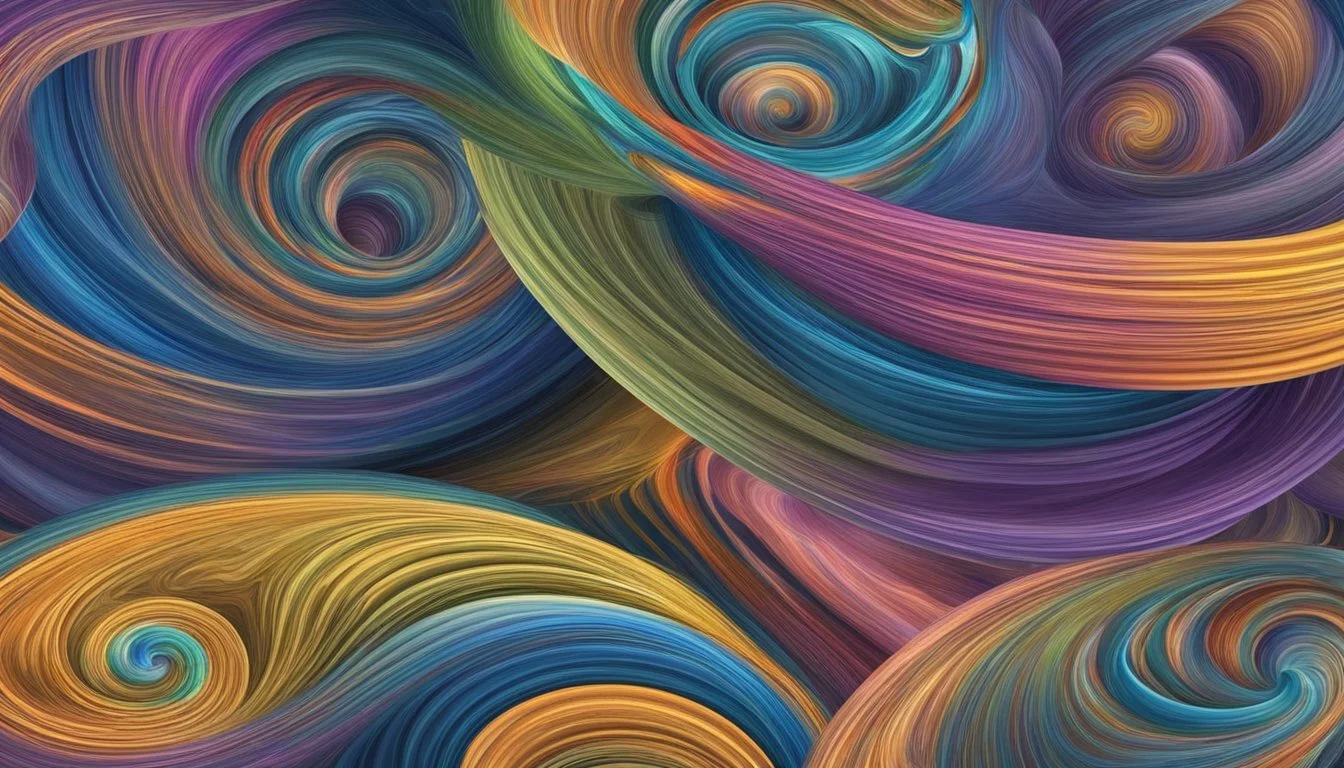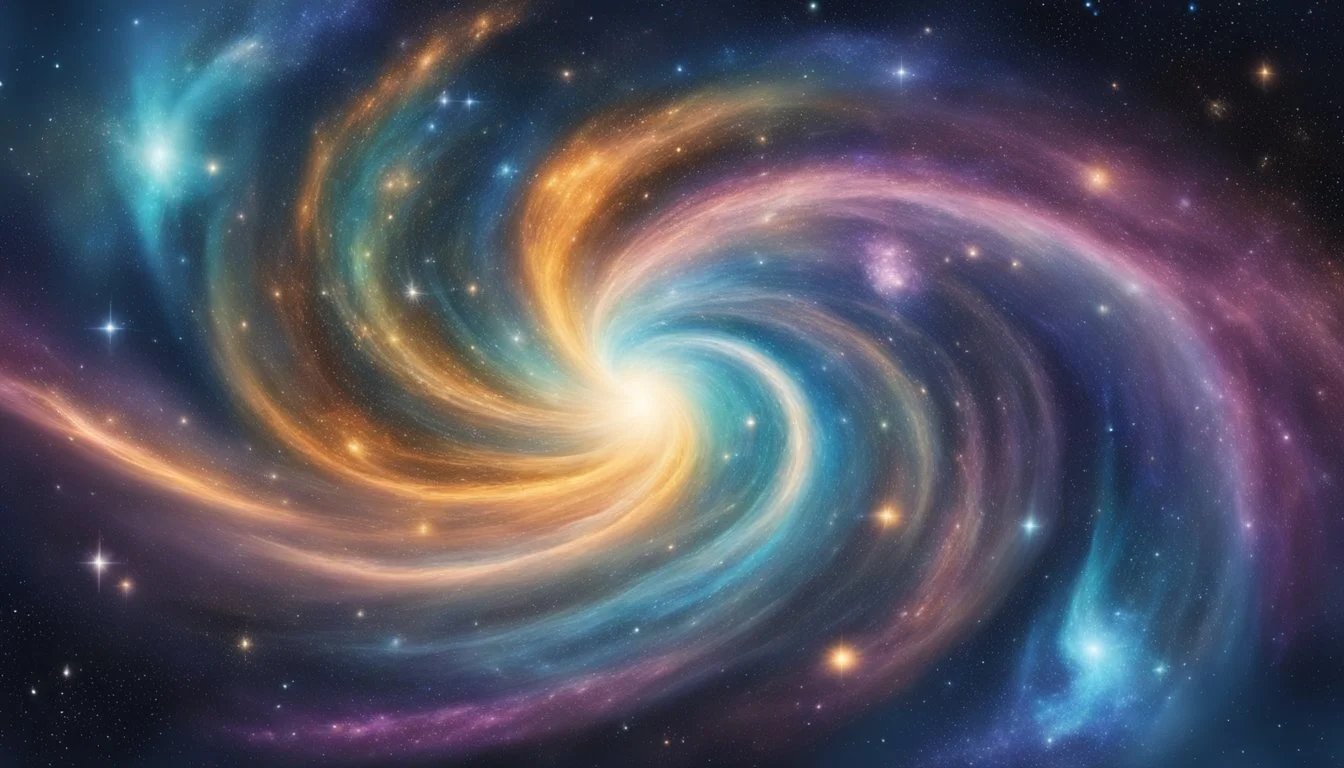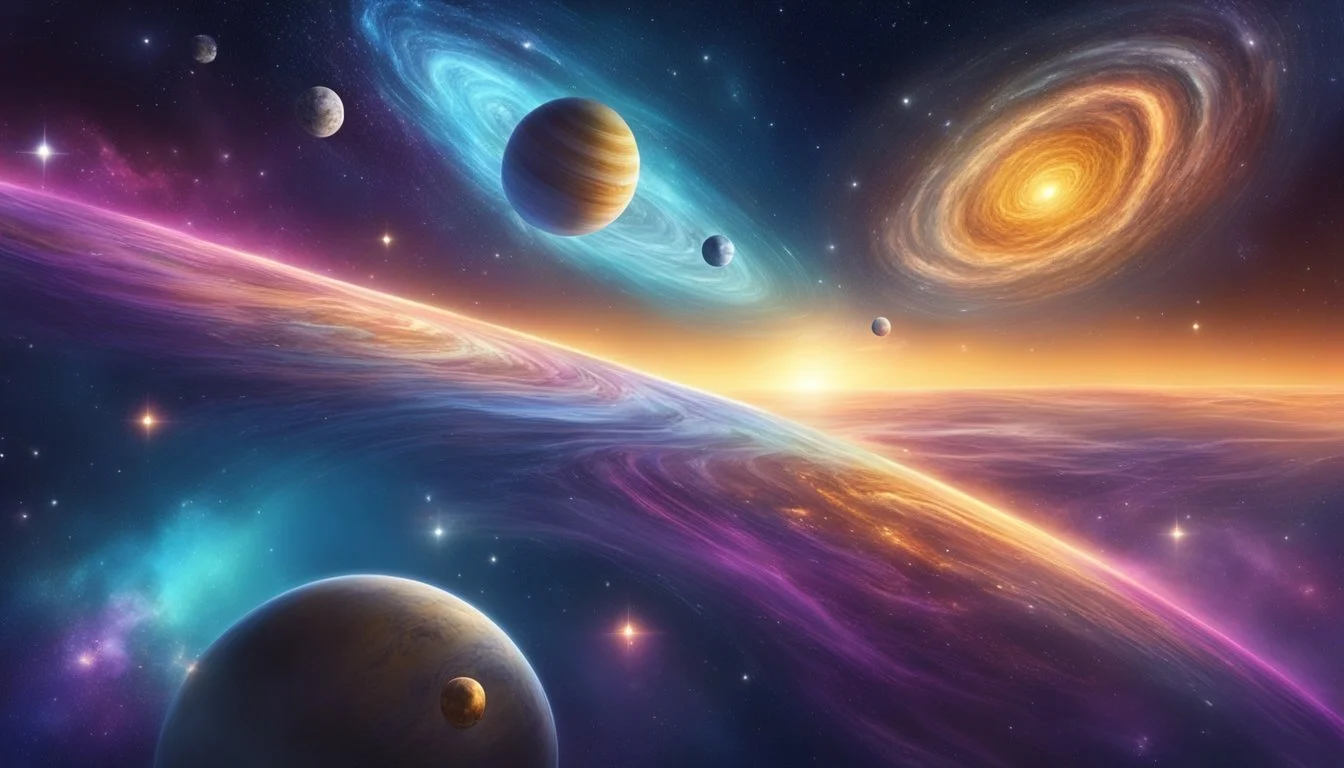10 Mind-Blowing Documentaries on Parallel Universes
Exploring the Multiverse Theory
Parallel universes have captivated human imagination for decades, sparking scientific debates and inspiring countless works of fiction. These hypothetical realms of existence offer mind-bending possibilities that challenge our understanding of reality and push the boundaries of what we consider possible.
Documentaries exploring parallel universes provide viewers with a unique opportunity to delve into this fascinating concept through expert insights and cutting-edge scientific theories. From quantum physics to string theory, these films offer a glimpse into the complex ideas surrounding multiple realities. They combine interviews with leading scientists, stunning visuals, and thought-provoking narratives to make abstract concepts accessible to a wide audience.
1) "A Glitch in the Matrix" by Rodney Ascher
"A Glitch in the Matrix" explores the provocative concept of simulation theory. This documentary film, directed by Rodney Ascher, delves into the idea that our reality might be a computer simulation.
Ascher interviews various subjects who share their experiences and beliefs about living in a simulated world. The film incorporates animated sequences and pop culture references to illustrate complex philosophical ideas.
"A Glitch in the Matrix" examines the cultural impact of films like "The Matrix" on public perception of reality. It also touches on the historical roots of simulation theory, tracing it back to ancient philosophical questions.
The documentary presents different perspectives on simulation theory without endorsing or dismissing any particular viewpoint. It encourages viewers to question their assumptions about reality and consider alternative explanations for existence.
Ascher's film premiered at the 2021 Sundance Film Festival, garnering attention for its thought-provoking content. It serves as a mind-bending exploration of reality, technology, and human consciousness.
https://en.wikipedia.org/wiki/A_Glitch_in_the_Matrix
2) "Parallel Worlds, Parallel Lives" featuring Mark Oliver Everett
"Parallel Worlds, Parallel Lives" is a captivating documentary that aired on BBC Four in November 2007. The film follows Mark Oliver Everett, lead singer of the band Eels, as he explores the life and work of his father, Hugh Everett III.
Hugh Everett III was a brilliant physicist who proposed the many-worlds interpretation of quantum mechanics. This groundbreaking theory suggests the existence of parallel universes, a concept that has fascinated scientists and the public alike.
In the documentary, Mark embarks on a journey to understand his father's complex ideas and legacy. He meets with his father's former colleagues and friends, gaining insights into Hugh's personality and scientific contributions.
The film blends personal narrative with scientific exploration, offering viewers a unique perspective on quantum physics. It presents complex theories in accessible terms, making the subject matter engaging for a wide audience.
"Parallel Worlds, Parallel Lives" not only delves into scientific concepts but also explores the relationship between Mark and his father. It presents a touching portrait of a son seeking to connect with his deceased parent through the lens of scientific discovery.
[https://en.wikipedia.org/wiki/Parallel_Worlds,_Parallel_Lives]
3) "The Fabric of the Cosmos" with Brian Greene
"The Fabric of the Cosmos" is a captivating documentary series based on Brian Greene's book of the same name. It explores complex concepts in physics and cosmology, including the possibility of parallel universes.
Greene, a renowned physicist, guides viewers through mind-bending ideas about space, time, and the nature of reality. The series delves into quantum mechanics, string theory, and the multiverse hypothesis.
Each episode tackles a different aspect of our understanding of the cosmos. Greene uses creative analogies and stunning visual effects to make abstract concepts more accessible to a general audience.
The documentary challenges viewers to reconsider their perception of reality and the universe. It presents cutting-edge scientific theories that suggest our universe may be one of many in a vast multiverse.
"The Fabric of the Cosmos" offers a fascinating journey into the frontiers of physics and cosmology. It invites viewers to ponder the deepest questions about the nature of existence and our place in the cosmos.
https://en.wikipedia.org/wiki/The_Fabric_of_the_Cosmos_(TV_series)
4) "Many Worlds" by David Deutsch
"Many Worlds" is a thought-provoking documentary that explores the controversial many-worlds interpretation of quantum mechanics. The film features renowned physicist David Deutsch, a key proponent of this theory.
Deutsch presents compelling arguments for the existence of parallel universes. He explains how quantum events could lead to the creation of multiple realities, each existing simultaneously.
The documentary delves into the scientific principles behind the many-worlds theory. It uses engaging visuals and animations to illustrate complex concepts for viewers.
Interviews with other prominent physicists provide additional perspectives on the theory. These discussions highlight both support for and criticisms of the many-worlds interpretation.
"Many Worlds" challenges viewers to reconsider their understanding of reality. It raises intriguing questions about the nature of the universe and our place within it.
https://en.wikipedia.org/wiki/Many-worlds_interpretation
5) "Through the Wormhole" hosted by Morgan Freeman
"Through the Wormhole" is a thought-provoking science documentary series that explores profound questions about existence and the universe. Narrated by the iconic Morgan Freeman, the show premiered on the Science Channel in 2010.
Each episode tackles complex topics like parallel universes, time travel, and the nature of reality. The series brings together leading scientists and researchers to explain cutting-edge theories and discoveries.
One episode specifically delves into the possibility of parallel universes. It examines various scientific ideas and models that suggest multiple realities might exist simultaneously.
The show's blend of Freeman's authoritative narration and expert interviews makes complex scientific concepts accessible to a general audience. It encourages viewers to ponder the mysteries of the cosmos and our place within it.
"Through the Wormhole" ran for eight seasons, concluding in 2017. Its exploration of parallel universes and other mind-bending topics continues to fascinate viewers interested in the frontiers of science.
https://en.wikipedia.org/wiki/Through_the_Wormhole
6) "What Is Reality?" by Nova
"What Is Reality?" is a thought-provoking documentary from the acclaimed PBS series Nova. It explores fundamental questions about the nature of existence and our perception of reality.
The film delves into cutting-edge physics theories, including string theory and quantum mechanics. It examines how these concepts challenge our understanding of the universe and our place within it.
Renowned physicists and cosmologists share their insights on parallel universes, multiple dimensions, and the fabric of spacetime. The documentary uses stunning visual effects to illustrate complex scientific ideas.
"What Is Reality?" investigates the possibility that our universe may be a hologram or computer simulation. It presents evidence from various scientific fields that support these mind-bending hypotheses.
The film encourages viewers to question their assumptions about reality and consider alternative explanations for the nature of existence. It bridges the gap between abstract theoretical physics and our everyday experience of the world.
https://www.pbs.org/wgbh/nova/physics/fabric-of-cosmos.html
7) "The Universe" by History Channel
"The Universe" is a long-running documentary series that explores various cosmic phenomena. The show delves into topics like parallel universes and the multiverse theory across its numerous episodes.
Episodes such as "Parallel Universes" and "Multiple Suns" examine the possibility of alternate realities existing alongside our own. The series uses stunning visualizations and expert interviews to explain complex scientific concepts.
Renowned physicists and cosmologists share their insights on string theory, quantum mechanics, and other frameworks that support the idea of parallel universes. The show presents these ideas in an accessible manner for general audiences.
"The Universe" also explores related concepts like wormholes, time travel, and the nature of reality itself. It examines how these phenomena might connect to the existence of parallel worlds or alternate timelines.
https://www.imdb.com/title/tt1051155/
8) "Multiverse: One Universe or Many?" by Alex Vilenkin
"Multiverse: One Universe or Many?" features renowned cosmologist Alex Vilenkin exploring the concept of multiple universes. This thought-provoking documentary delves into the scientific theories supporting the multiverse hypothesis.
Vilenkin presents compelling arguments for the existence of parallel realities beyond our observable universe. He discusses how inflation theory and string theory provide potential frameworks for understanding the multiverse.
The film examines the implications of a multiverse for our understanding of reality and the nature of existence. It addresses key questions about the origins of our universe and the possibility of alternate versions of ourselves in other universes.
Viewers are introduced to cutting-edge research in theoretical physics and cosmology. The documentary balances complex scientific concepts with accessible explanations, making it engaging for both science enthusiasts and general audiences.
https://en.wikipedia.org/wiki/Alex_Vilenkin
9) "Cosmos: A Spacetime Odyssey" with Neil deGrasse Tyson
"Cosmos: A Spacetime Odyssey" is a groundbreaking documentary series that explores the wonders of the universe. Hosted by renowned astrophysicist Neil deGrasse Tyson, this 2014 show serves as a sequel to Carl Sagan's original "Cosmos: A Personal Voyage" from 1980.
The series takes viewers on a captivating journey through space and time, utilizing stunning visual effects and animations. Tyson's engaging narration brings complex scientific concepts to life, making them accessible to a wide audience.
Each episode covers various topics in astronomy, physics, and natural sciences. The show explores the origins of the universe, the nature of space-time, and the potential for parallel universes.
"Cosmos: A Spacetime Odyssey" received critical acclaim for its ability to inspire wonder and curiosity about the cosmos. It combines scientific rigor with compelling storytelling, encouraging viewers to contemplate their place in the vast universe.
The series' exploration of parallel universes offers a fascinating glimpse into cutting-edge theories in modern physics. It presents these concepts in a way that sparks imagination and encourages further inquiry into the nature of reality.
https://en.wikipedia.org/wiki/Cosmos:_A_Spacetime_Odyssey
10) "The Holographic Universe" featuring Brian Cox
"The Holographic Universe" is a thought-provoking documentary that explores the fascinating concept of our reality as a holographic projection. Hosted by renowned physicist Brian Cox, this film delves into the mind-bending theories of quantum mechanics and their implications for our understanding of the universe.
Cox guides viewers through complex scientific ideas with clarity and enthusiasm. He explains how the holographic principle suggests that all information about our three-dimensional reality may be encoded on a two-dimensional surface, similar to how a hologram works.
The documentary features interviews with leading scientists and researchers in the field. It examines cutting-edge experiments and theories that support the holographic universe hypothesis, including string theory and black hole physics.
Viewers are introduced to the work of physicists like Leonard Susskind and Gerard 't Hooft, who pioneered the holographic principle. The film also discusses the potential implications of this theory for our understanding of consciousness and reality itself.
"The Holographic Universe" offers a captivating blend of science and philosophy, challenging viewers to reconsider their perception of the world around them.
[https://www.imdb.com/title/tt2414728/]
The Science Behind Parallel Universes
Parallel universes have captivated scientists and theorists for decades. The concept stems from complex physics theories that suggest our universe may be one of many. These ideas challenge our understanding of reality and the nature of existence.
Quantum Mechanics and Multiverse Theory
Quantum mechanics forms the foundation for multiverse theories. At the quantum level, particles can exist in multiple states simultaneously, a phenomenon called superposition. This led to the Many-Worlds Interpretation, proposed by Hugh Everett in 1957.
The theory suggests that every quantum event creates a branching of realities. Each possibility manifests in a separate universe. This could result in an infinite number of parallel worlds, each slightly different from our own.
Some physicists argue that quantum decoherence explains how these parallel realities remain separate. Decoherence occurs when quantum systems interact with their environment, causing distinct realities to emerge.
The Role of String Theory
String theory proposes that the universe consists of tiny vibrating strings. These strings exist in multiple dimensions beyond the four we can perceive. The theory suggests there could be 10 or 11 dimensions in total.
In this framework, our universe might be a three-dimensional "brane" floating in a higher-dimensional space. Other branes could exist parallel to ours, potentially harboring alternate realities.
String theory also introduces the concept of the "landscape" - a vast number of possible vacuum states. Each of these states could represent a different universe with its own physical laws and constants.
Physicists continue to explore these ideas, seeking ways to test and verify them experimentally. While parallel universes remain theoretical, they push the boundaries of our understanding of reality.
Philosophical Implications
Parallel universe documentaries raise profound questions about the nature of reality and human existence. These films challenge our fundamental assumptions and push us to contemplate our place in a potentially vast multiverse.
Alternate Realities and Consciousness
The concept of parallel universes forces us to reconsider the nature of consciousness and identity. If multiple versions of ourselves exist across realities, what defines our unique essence? Some philosophers argue that consciousness may be a fundamental property of the universe, interconnected across parallel worlds.
This idea raises intriguing possibilities about the continuity of self. Could our consciousness somehow merge or communicate across realities? Documentaries exploring these themes often feature interviews with physicists and philosophers debating the implications for personal identity and the nature of the soul.
Impact on Free Will and Determinism
Parallel universe theories have significant implications for the age-old debate between free will and determinism. In a multiverse where all possible outcomes occur, does individual choice still matter?
Some argue that parallel universes actually reinforce the concept of free will. Every decision creates a new branch of reality, making our choices profoundly meaningful. Others contend that if all possibilities play out, our actions are ultimately predetermined.
Documentaries on this topic often present thought experiments and expert discussions to illustrate these complex ideas. They challenge viewers to reconsider their beliefs about personal responsibility and the nature of decision-making in a potentially infinite multiverse.





